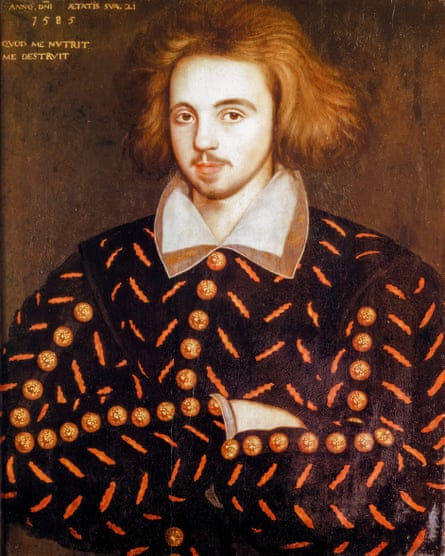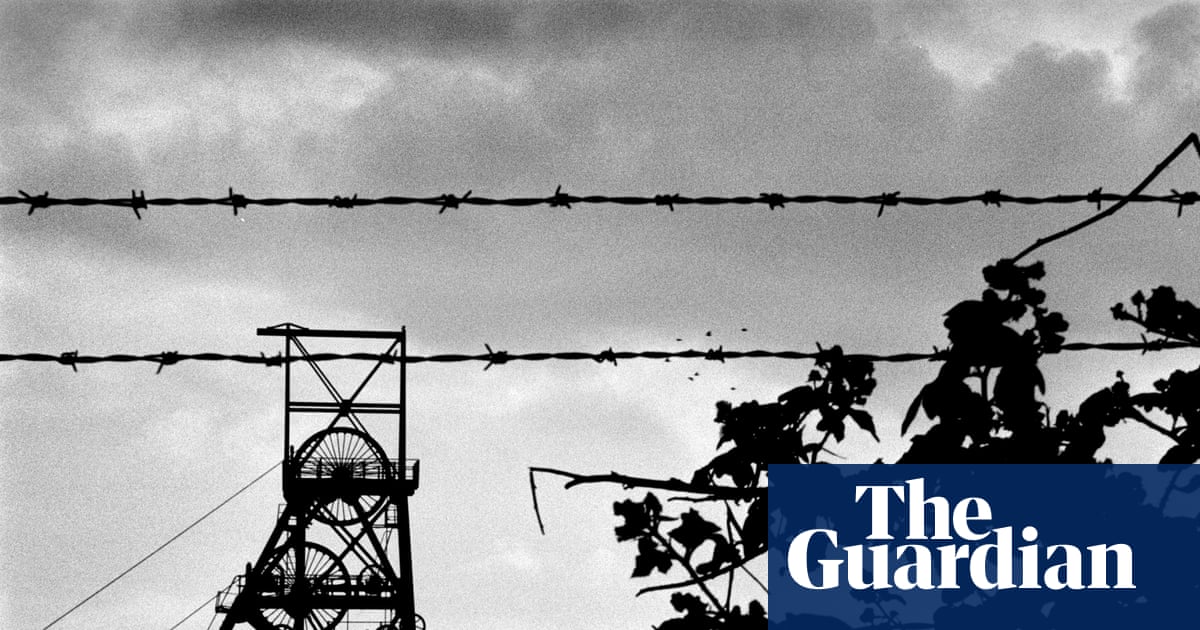It has all the makings of a classic Val McDermid mystery: a sudden death, a cast of shadowy figures and a tangle of motives buried beneath layers of official secrecy.
But this time, the queen of crime is not inventing a murder, she is revisiting one of history’s most enduring whodunnits – the mysterious death of Christopher Marlowe.
In her new play, And Midnight Never Come, McDermid explores the controversial circumstances around the death of the brilliant and subversive Elizabethan playwright who was stabbed to death in a Deptford tavern at the age of 29. Officially, Marlowe was killed over a row about a bill. Unofficially? Espionage, heresy and a state-sanctioned cover-up are all in the frame.
“This play has been a long time in the making, I started thinking about it more than 40 years ago,” McDermid said. “Over the years, I think I’ve read pretty much everything that’s been written about Marlowe.
“And I think there’s another story lurking in the background here. I’ve got my own theory of what happened. I don’t want to give away spoilers, but I will say that I don’t think Christopher Marlowe was meant to die that day. My conclusion will surprise people, but I think it will also make sense of something people have long found unsatisfactory.”

Researchers widely believe Marlowe worked as an intelligence agent during his lifetime, most likely within the spy network of Sir Francis Walsingham.
In 1587, the young writer was nearly denied his degree from Cambridge amid rumours he had travelled to Catholic seminaries abroad – a potentially treasonous act. But the privy council intervened, saying he had been “employed in matters touching the benefit of his country” and had “done Her Majesty good service”.
It was a combination of Marlowe’s access to sensitive information, his provocative writings and reported atheism, that many believe made him a target to a range of people and groups. When he was killed in May 1593, it was while he was on bail to the privy council for alleged heresy and blasphemy.
The circumstances around his stabbing were highly suspicious – his killer, Ingram Frizer, was pardoned less than a month later and no inquest records survive. Frizer and the two other men present (Nicholas Skeres and Robert Poley) all had links to the Elizabethan secret service.
Some theories suggest the killing was state-sanctioned; others claim Marlowe’s death was faked and that he escaped abroad, possibly continuing to write under a pseudonym (with a fringe theory even naming him as the true author of Shakespeare’s works).
McDermid said she learned there were “a lot of reasons why you might want to get rid of” Marlowe.
“He held a lot of people’s fates in his hands,” she said. “He kept company with many powerful figures in Elizabeth’s court, some of whom were notorious for opinions that sailed close to the wind. In Elizabethan England, a man – or woman – could be executed for opinions that were open to interpretation as heresy.
“For example, Marlowe’s fellow playwright Thomas Kyd, who was also a professional scribe, was arrested and tortured for possessing material the authorities considered heretical, even though he swore he was simply doing a paid job. To get himself off the hook, Kyd claimed he’d been copying Marlowe’s words; an unlikely excuse in respect of a man who had written half a dozen plays and a substantial body of poetry!”
McDermid said the popular version of Marlowe’s death was evidently not true. “For a start it wasn’t a tavern, it was a private house owned by a woman called Eleanor Bull, who was related by marriage to one of Elizabeth’s other spy masters,” she said.
But the writer does not place much stock in the other theories about his death, including that it was a political killing. “I find this unsatisfactory,” she said.
“If his supposed enemies had wanted Marlowe out of the way, they’d have had no need of such an elaborate set-up. He was riding alone daily between Thomas Walsingham’s home in Scadbury to the privy council in Nonsuch Palace to keep the conditions of his bail – a distance of almost 18 miles through rural countryside with dozens of opportunities for an anonymous ambush and assassination.”
She added: “These were not backstreet thugs he was dealing with, they were clever and strategic men of power. It would have been well within their capabilities to get rid of Marlowe and make it look like a street brawl, or knock him out and tip him unconscious into the Thames. There would have been no need to potentially implicate anyone connected with either the Walsingham family or Marlowe’s other powerful connections.”
McDermid has been writing thrillers for more than 30 years, selling more than 19m copies worldwide and winning numerous awards. Script-in-hand readings of And Midnight Never Come will take place at Pitlochry festival theatre and the Edinburgh international book festival on 18and 19 August.
She said the play was framed by Marlowe’s final day, and paid tribute to the late writer’s extravagance.
“Marlowe was a pretty wild guy in lots of respects. He was flamboyant, he was a bit of a jack the lad. He’d get his sword out without much provocation. And he was clearly very sexy,” she said.

 3 months ago
104
3 months ago
104

















































